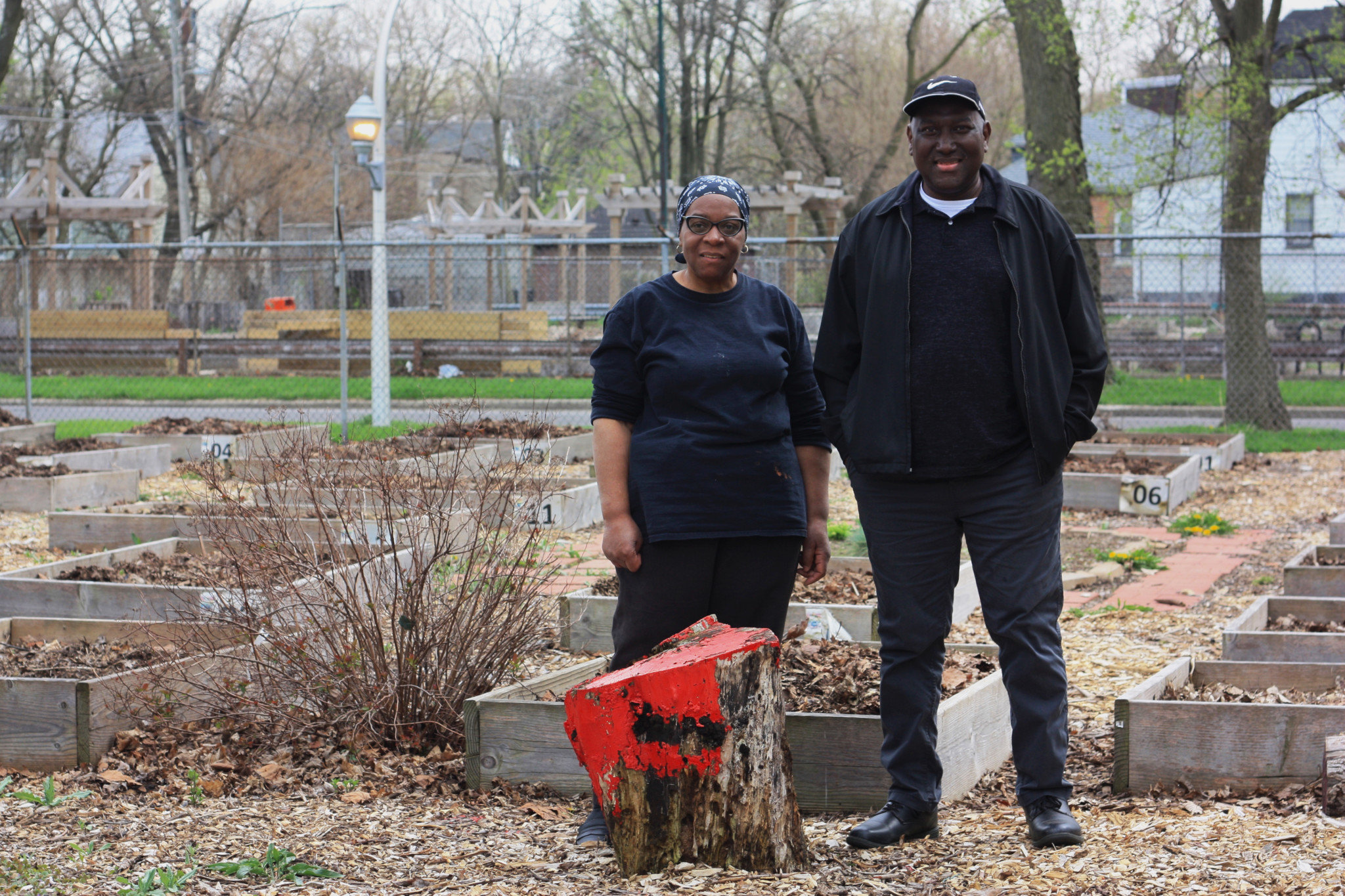“Gardening is going to be a game changer.” That’s what Cordia Pugh says to me as we walk through the Hermitage Street Community Garden.
Pugh would know. She’s seen the growth of the Englewood garden through from its early stages (a backyard assemblage of around one hundred potted plants belonging to friends and neighbors) into a three-lot garden of raised beds, a gazebo, and a tree-shaded gathering area. Across 57th Street, there’s another garden, this one for the use of veterans and out-patients at the recovery center across the street.
“We’re all soil deficient and sun deficient,” Pugh says. “We’re disconnected from nature.”
A longtime Englewood resident and gardener, Pugh finds importance in gardens’ healing properties. On one of the several occasions she was undergoing chemotherapy—she is a three-time cancer survivor—she would sit out in the garden every day, or her car outside the garden, if that’s what she could manage. “It takes the anxiety down,” she says.
Sitting underneath the the trees with her son, Leonard, Cordia talks about the serendipitous origins of the garden. The first section, to the north of the shade trees, originally belonged to Growing Home, a nearby farm and job-training organization. Its founding executive director Harry Rhodes agreed to allow Cordia to use the land in 2011, before local green space conservation organization NeighborSpace stepped in to purchase the land on her behalf. The funding for the structures came from a Lindblom Math and Science Academy engineering class, which had been tasked with finding a community project to help organize and fundraise for.
Then the city demolished the house next door, which gave rise to the gathering area we’re sitting in, and then the recovery center across the street agreed to let Pugh use the vacant lots they weren’t using, resulting in the expansion of the garden and the creation of the veterans garden across the street.
The garden grew quickly over the course of eight years, but received support from across the community and city throughout. “Many hands make the load light,” Pugh says. And the garden continues to be a gathering site, drawing neighbors from nearby blocks as well as from Calumet Heights, Washington Heights, and Hyde Park.
Pugh embraces this openness in all aspects of the garden. Hermitage Street Community Garden runs as a communal garden. Instead of plots being assigned strictly to families, the plots belong to everyone. On planting day, gardeners and neighbors will plant all the raised beds with all the seeds they have. That way, Pugh says, no one gets left out. “If something comes up, or the squirrel got the cabbage,” Pugh says, you aren’t excluded from participating in the garden for the rest of the harvest season. Twice a week, no matter what, everyone can fill up their bag with fresh produce.
And the produce keeps coming up. The garden regularly donates its excess produce to senior centers in the neighborhood, and over the course of the summer it amounts to nearly 10,000 pounds, Pugh says.
Now, Pugh says, they’re working on growing their programming. There are Zumba classes in the gazebo and there are classes on composting, sowing, and growing, as well as on making lotions from garden-grown herbs. For the second summer in a row, Pugh is organizing a nine-week summer camp for kids.
Pugh says that this community garden is the perfect template. “Put this in the copier and it will work across Chicago.” (Emeline Posner)
Hermitage Street Community Garden, 5643–55 S. Hermitage Ave., and Englewood Veterans Garden, 5641 S. Hermitage Ave. (773) 245-3017. hermitagestreetcommunitygarden@gmail.com
Emeline Posner is a co-managing editor of the South Side Weekly.


thank you so much